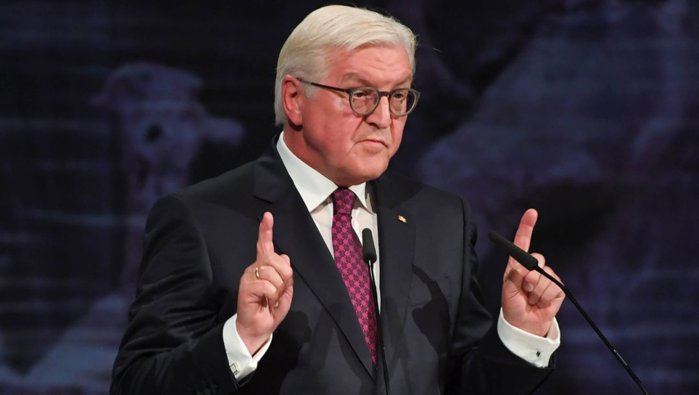
Steinmeier Warns Against Politicizing Germany’s Court
At the inauguration of three new judges, Steinmeier cautioned that the Constitutional Court must not become a political instrument.
As three new judges officially took office at Germany’s Federal Constitutional Court, President Frank-Walter Steinmeier delivered a forceful admonition to political parties: the court must not become a tool for partisan gain. He emphasized that its role must remain above political maneuvering, and that all actors bear responsibility for safeguarding its impartiality and legitimacy.
The swearing-in followed a fraught election process in the Bundestag, and Steinmeier used the moment to call for renewed respect for judicial independence amid increasing pressures on liberal democracy.
A Contentious Appointment Cycle
Delayed Selection & Political Pushback
Originally, the Bundestag was meant to finalize the new appointments before its summer recess, but the proposals faced a last-minute derailment. The initial candidate, Frauke Brosius-Gersdorf (nominated by SPD), encountered resistance—particularly from CDU factions—over her positions on abortion and perceived political activism. As a result, the majority for her confirmation remained uncertain, and the vote was postponed. Eventually, she withdrew from consideration.
New nominees—Sigrid Emmenegger, Ann-Kathrin Kaufhold, and Günther Spinner—were later selected and confirmed by parliament. Steinmeier’s formal appointment marks the final procedural step before they assume their roles. Kaufhold is expected to become Vice President of the Constitutional Court.
These events underscore how fraught the selection of constitutional judges has become in Germany’s polarized political climate.
Steinmeier’s Message: Safeguard the Court’s Integrity
A Constitutional Bulwark in Peril
Steinmeier began his address by acknowledging institutional reforms: he praised the recent constitutional amendments that strengthen the structure of the Federal Constitutional Court (Bundesverfassungsgericht) and introduce safeguards against procedural deadlocks in election processes. Yet he cautioned that legal reforms are insufficient if political actors fail to respect the court’s independence.
He delivered a stern warning:
“To politicize judicial appointments for one’s own advantage would betray our duty to protect the court’s impartial standing.”
He framed the Constitutional Court as a “guardian of democracy” in challenging times, arguing that whenever autocratic tendencies rise, attacks often land first on the judiciary.
Political Instrumentalization as a Threat
Steinmeier stressed that the court must remain shielded from party interests. He warned that political actors who view it merely as a tool risk undermining both its legitimacy and the democratic system itself.
He delivered a broader reminder:
“No one who competes politically is exempt from preserving the nonpartisan esteem and functional integrity of this institution.”
In doing so, he signaled that the responsibility to protect the court does not lie solely with judges but with every elected official.
Stakes and Implications for Germany’s Checks and Balances
Institutional Independence vs. Political Pressure
Germany’s Basic Law enshrines judicial independence as a bedrock of democratic governance. But in a climate of growing polarization, the selection process becomes a battleground over who gets to interpret constitutional boundaries.
By intervening publicly, Steinmeier is reaffirming that judicial nominations are not just legal appointments—they carry significant symbolic weight. The message: parties must temper ambition with restraint.
Vote Dynamics & Coalition Strains
The CDU/CSU–SPD coalition does not hold a two-thirds majority, meaning cross-party alignment is mandatory for such key judicial appointments. The initial collapse of Brosius-Gersdorf’s nomination demonstrated how fragile that coalition is, especially when ideology conflicts with political convenience.
That said, the eventual three appointments passed, ending a dispute that had simmered through the summer. The resolution may ease some tensions — though the lingering memory of behind-the-scenes maneuvering could affect perceptions of judicial credibility.
Public Trust and Legitimacy
Public confidence in institutions is critical in times of democratic stress. Any sense that the top court is politicized—even subtly—can erode authority. Steinmeier’s speech is an attempt to address precisely that risk, by re-centering public discourse on constitutional norms.
Whether his warnings shift behavior remains to be seen; the real test is how the new justices act and how political parties respond in subsequent contentious cases.
Comparative Perspectives & Challenges Ahead
Regional Comparisons
European democracies frequently face challenges protecting constitutional courts from political pressures. Germany’s experience with this cycle confirms that even mature institutions are vulnerable when polarization intensifies.
In some systems, courts are insulated via staggered terms, appointment commissions, or cross-branch veto powers. Germany’s recent structural reforms — including rules to prevent procedural blockades — point in a similar direction.
Looking Ahead: Key Watching Points
- Judicial behavior: Will the new judges rule impartially on high-stakes political cases (e.g. emergency powers, freedoms, federal/state conflicts)?
- Political restraint: Will parties shy away from further aggressive nominations or campaigning tactics targeting constitutional review?
- Public reaction: Media and civil society scrutiny of the appointments and early rulings will test the trust in the court.
- Coalition stability: How robust will the governing coalition remain under such pressure? Will future appointments be smoother—or more contentious?
Conclusion
Frank-Walter Steinmeier’s call at the inauguration of Germany’s new constitutional judges was more than ceremonial—it was a timely admonition. By urging restraint, reminding officials of their responsibilities, and framing the court as a democratic linchpin, he attempted to steer future institutional conduct.
In an era of shifting rhetoric and institutional stress, Germany’s judiciary must navigate the tension between legal interpretation and political influence. The choice made now — on how politics interacts with constitutional review — may define democratic resilience in this generation.
Source: Deutschlandfunk DIE WELT rechtundpolitik.com ZDFheute






